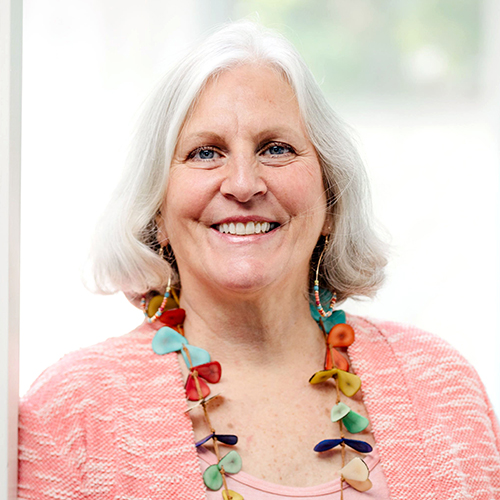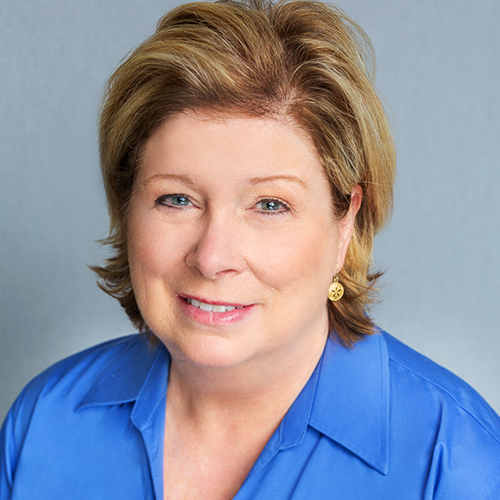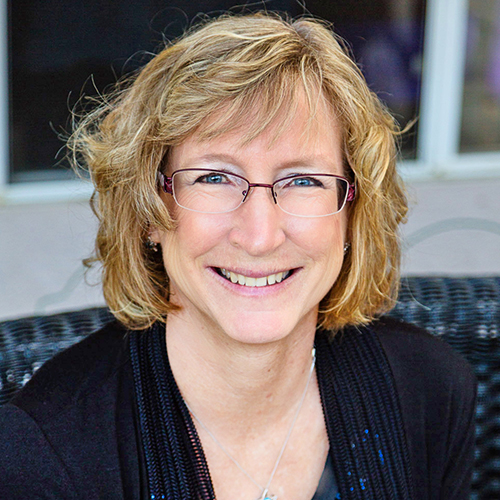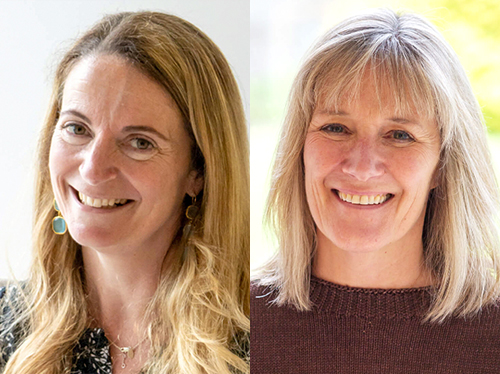 IBCLC Detailed Content Outline: Pathology Focused CERPs - Section III
IBCLC Detailed Content Outline: Pathology Focused CERPs - Section III
Access CERPs on Pathology for the IBCLC Detailed Content Outline recertification requirements. Enjoy convenient on-demand viewing of the latest Pathology focused IBCLC CERPs at your own pace.
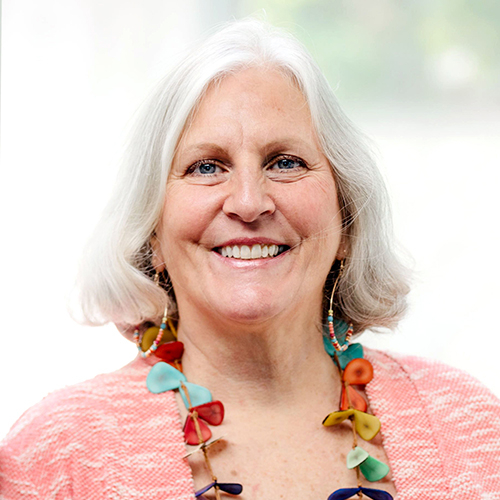
The Impact of Bodywork on Infant Breastfeeding

Dr. Hazelbaker has been a therapist in private practice for over 30 years. She specializes in cross-disciplinary treatment and to that end has taken training in several modalities to best assist her clients. She is a certified Craniosacral Therapist, a Lymph Drainage Therapy practitioner, a Tummy Time™ Trainer, a Haller Method practitioner, A Pre and Perinatal Psychology Educator, a Lactation Therapist Diplomate, an International Board Certified Lactation Consultant and a fellow of the International Lactation Consultant Association.
She earned her Master’s Degree from Pacific Oaks College (Human Development specializing in Human Lactation) and her doctorate from The Union Institute and University (Psychology, specializing in Energetic and Transformational healing.)
People recognize her as an expert on infant sucking issues caused by various structural problems like torticollis, plagiocephaly, brachycephaly and tissue shock-trauma. She invented the Hazelbaker™ FingerFeeder and the Infant Breastfeeding CranioSacral Protocol™ to assist in the resolution of this type of infant sucking dysfunction.
Topic: Cranial Nerves: A Critical Component of the Process of Breastfeeding - [View Abstract]
Topic: Creating Flow: Using Lymphatic Drainage Therapy for Breastfeeding Issues - [View Abstract]
Topic: Finger Feeding: What Do We Know? What Should We Know? - [View Abstract]
Topic: Gamechangers: New studies that will change the way we think about tongue-tie - [View Abstract]
Topic: Infant Trauma: Impact on Breastfeeding - [View Abstract]
Topic: The Faux Tie: When is a "Tongue-tie" NOT a Tongue-tie? - [View Abstract]
Topic: The Impact of Bodywork on Infant Breastfeeding - [View Abstract]
Topic: What Does Torticollis Have to do with Breastfeeding? - [View Abstract]
This session addresses the types of breastfeeding problems that respond to bodywork. Dr. Hazelbaker presents examples of structurally related sucking dysfunction that indicates the need for bodywork. She discusses the three major release areas that must be addressed to resolve the sucking issue.
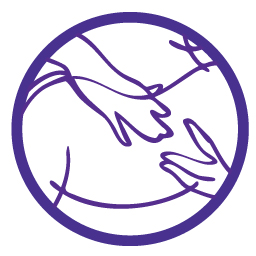
View Details / Enroll
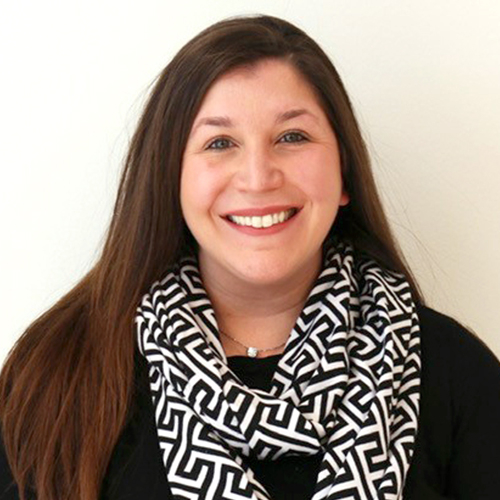
The Impact of Tongue-Tie and Frenotomy on Infant Feeding: An Overview of Available Research

Rebecca Russo Hill, PhD, DNP, RN, FNP-C earned her BSN from the University of Rhode Island in 2006, her MSN and post-master’s certificate in nursing education from Duke University in 2010, her DNP from Duke University in 2013 and her PhD in Nursing from Boston College in 2021. Rebecca is a family nurse practitioner and certified as a lactation counselor and nurse educator. She is the current program director of prelicensure nursing programs at the MGH Institute of Health Professions in Boston, MA.
Rebecca’s dissertation research focused on symptoms of problematic feeding in infants with tongue-tie. She will collaborate with other health profession disciplines to advance the state of the science surrounding infant feeding, tongue-tie, and frenotomy. Her dissertation research has provided the foundation for a lifelong program of research to improve health care for mothers and their children. She is currently studying the effects of frenotomy on non-nutritive sucking mechanics.
Rebecca is an active member of several professional organizations including the American Nurses Association (ANA), American Association of Nurse Practitioners (AANP), the National League for Nursing (NLN) and Sigma Theta Tau International (STTI). Rebecca resides in Massachusetts, raising three children alongside her husband Jonathan.
Despite the low-level of evidence supporting the correction of tongue-tie for breastfeeding problems, recognition and treatment has increased substantially over the last 20 years. Recent systematic reviews have highlighted the findings from available research, the gaps in the science, and recommendations for future research. This presentation presents the results of a review of original research on tongue-tie and its treatment via frenotomy. Learn more about the maternal symptoms and signs of problematic feeding that may be associated with tongue-tie in the infant and what the available research tells us about recommendations for infants with tongue-tie.
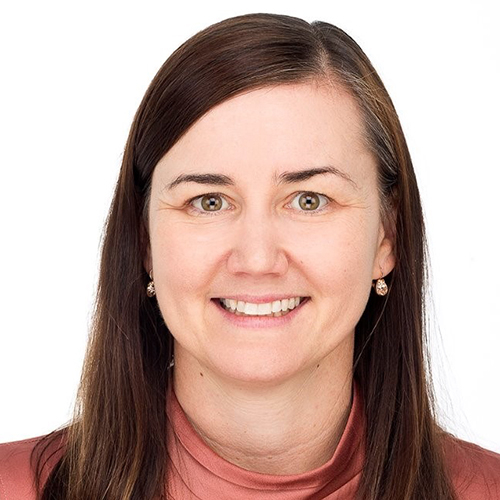
The Impact of Tongue-Tie on Swallowing and the Implications for Breastfeeding and Starting Solids

Dr. Sharon Smart is a dedicated and accomplished Lecturer in the Curtin School of Allied Health. With over a decade of experience, Dr Smart has a proven track record of coordinating and teaching undergraduate and postgraduate units in paediatric speech, language, feeding and swallowing disorders.
Dr. Smart has made significant contributions to the study of infant feeding, swallowing disorders in children, tongue-tie, and paediatric speech and language development. Her passion for translating clinical problems into research topics has improved the lives of countless children and their families.
In addition to her research, Sharon is committed to educating the next generation of health professionals. She takes pride in teaching evidence-based assessment and intervention practices, empowering students and clinicians to become skilled and compassionate practitioners.
Dr. Smart serves as a board member on two organisations: the Australasian Society of Tongue and Lip Tie (ASTLIT) and the International Consortium of Ankylofrenula Professionals (ICAP). As a board member, Sharon contributes her expertise and leadership to help guide these organisations in achieving their missions.
Infants and children with tongue-tie can have difficulty swallowing, poor breastfeeding latch, and difficulty transitioning to solid foods. The impact of tongue-tie on these functions can have long-lasting effects on a child's development and well-being. This presentation will include discussion on the anatomy and physiology of swallowing and how it can be impacted by a restricted lingual frenulum. It will include discussion on the typical development of oral motor skills during breastfeeding and transition to solids, and the impact that tongue-tie can contribute to the introduction of solid foods, and challenges with chewing and swallowing. Overall, this presentation will aim to increase your understanding the impact of tongue-tie on feeding and swallowing which is crucial for healthcare professionals working with infants and young children to improve outcomes for both the child and family.
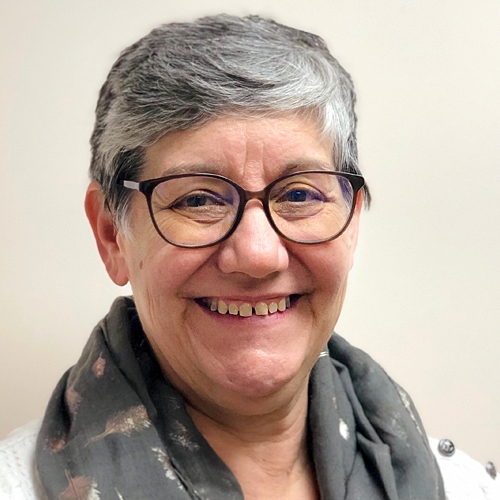
The Impact of Tongue-Tie on the Musculoskeletal and Nervous Systems

Dr. Sharon A. Vallone is a graduate of Rutgers University (AB Microbiology 1978) and New York Chiropractic College (1986). She completed her Diplomate in Clinical Chiropractic Pediatrics in 1996 through Palmer College and received her appointment as Fellow in Clinical Chiropractic Pediatrics in 2003. Dr. Vallone has a private practice limited to high risk pregnancies and challenged children in Connecticut and is currently the Chair of the Board of Kentuckiana Children’s Center in Louisville, KY and past Vice Chair of the International Chiropractic Association’s Council Pediatric Council. She is an international speaker, author, and editor of the Journal of Clinical Chiropractic Pediatrics. Sharon brings 33+ years of pediatric chiropractic experience with a primary interest in pregnancy, birth trauma, breastfeeding and problems with infant /toddler neurodevelopment.
Topic: Wondering about “The Wanderer?” The Vagus and Ankyloglossia - [View Abstract]
The impact of tethered oral tissues on the fascial system of the neonate can be the origin of both successful and unsuccessful compensatory biomechanical alterations in an attempt to breastfeed. These biomechanical alterations can manifest as asymmetries in appearance and function as well as in behavioral challenges ranging from sleep disturbance, colic like symptoms and inconsolable crying. It is important to understand these issues when looking at the whole picture so as to improve outcomes when surgical interventions are required. The goal of this lecture will be to support the attendees with understanding the relationship between structure and function and how this ties in with physical limitations like tongue and lip tie, the biomechanical assessment and discussion of manual therapies available to assist the breastfeeding dyad.

The Integration of Feeding Skills: Oral Motor Patterns and Reflexes

Kristie Gatto, MA, CCC-SLP, COM received her bachelor’s and master’s degrees from the University of Houston in Houston, Texas. She has worked as a speech-language pathologist in the public and private school systems, skilled nursing, rehabilitation and children’s hospitals, and in private practice. In 2004, Ms. Gatto became the co-owner of a private practice in Northwest Houston and began her journey in treating children with pediatric feeding disorders. After years of searching for answers in traditional feeding approaches, she underwent training in the field of Orofacial Myology and became the first certified orofacial myologist in the city of Houston in 2011. Ms. Gatto is currently the owner of The Speech and Language Connection, which has two offices in the greater Houston area and employs 21 speech-language pathologists with various specialties.
For the past ten years, she has focused her clinical skills on treating patients with issues in feeding, dysphagia, deglutition, oral sensory aversion, orofacial myology, and swallowing- related disorders, as well as articulation, phonological processing, apraxia, and early childhood intervention.
Ms. Gatto is a member of the American Speech-Language-Hearing Association (ASHA), International Association of Orofacial Myology (IAOM), American Academy of Private Practice in Speech Pathology & Audiology (AAPPSPA), Texas Speech-Language-Hearing Association (TSHA), and Houston Association for Communication Disorders (HACD). Additionally, she serves on the board of directors for the IAOM and AAPPSPA and the Community Advisory Board for the University of Houston.
Babies are born with lips, tongues, jaws, cheeks and reflexes that were designed for natural acquisition of skills in feeding, drinking, facial expression and, in speech. Oral motor patterns are the functioning of these structures, whereas, the reflexes are the infant’s mode of survival. These skills occur naturally when the oral structure is intact. When abnormality to the anatomy occurs, maladaptive movements are created and compensatory strategies are learned. The infant, child, or adult modifies their muscle functioning to eat, drink, and speak that directly affects the appropriate integration of higher skills during these feeding milestones. This session will address the normal and abnormal oral motor patterns, feeding milestones and the natural integration of the reflexes.

View Details / Enroll
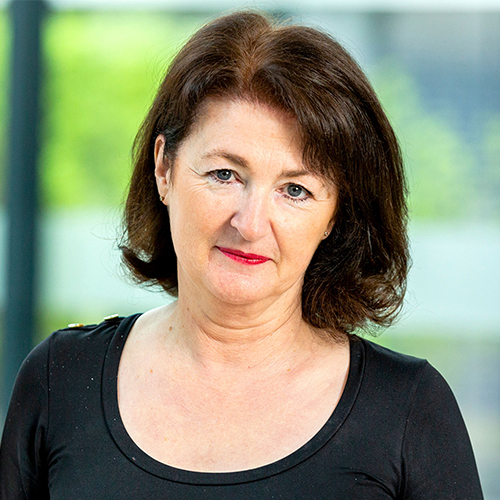
The Latest on Breastfeeding and Candida

Background: There are many factors associated with nipple and breast pain in breastfeeding women. The aetiology and management of mammary candidiasis can add additional challenges for the clinician as they endeavour to provide expert care to the breastfeeding dyad.
Review: The literature was reviewed to explore the diagnosis and management of candida in the breastfeeding dyad.
Findings: There remains a lack of robust evidence in the literature to support accurate diagnosis of candida. Correct treatment and avoidance of over treatment is important.
Conclusion: An exploration of the differential diagnosis for nipple and breast pain is indicated for all women presenting with nipple and breast pain. Culture of breastmilk is important for women suspected of mammary candidiasis, however, analysis is not without challenges.
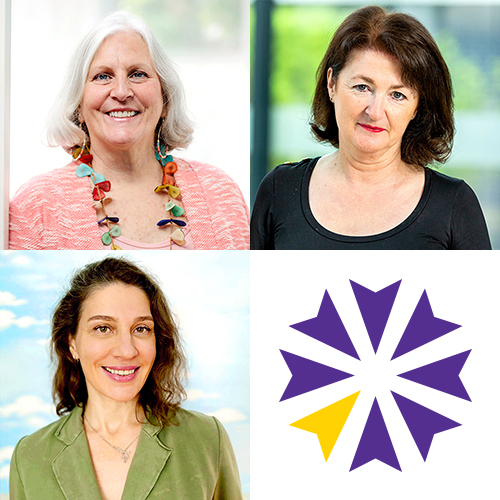
View Details / Enroll
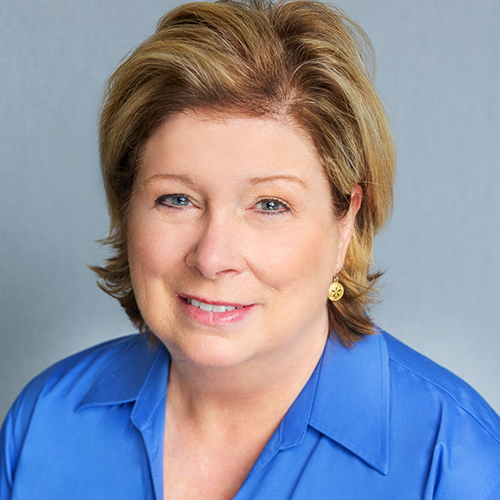

Dr. Scott is the coordinator of the advanced practitioner group for Mednax Medical Group in Nashville, Tennessee as well as the coordinator of the neonatal transport service at Centennial Medical Center, also in Nashville. She is also an assistant professor in the neonatal nurse practitioner program at Vanderbilt University School of Nursing. For the last few years, she has become interested in the use of telemedicine in neonatal care and works with a Neonatology practice that actually practices using telemedicine in Level I and II facilities. She is also involved in quality improvement at the state level through her work with the Tennessee Initiative for Perinatal Quality Care.
Patti received her Bachelor’s Degree in Nursing from Vanderbilt University in 1988. Her Masters of Science Degree in Nursing with a specialty in neonatal critical care was completed in 1993 from Vanderbilt University and her Doctorate in Nursing Practice from the University of Tennessee Health Science Center. She has successfully completed the National Certification Corporation's Neonatal Nurse Practitioner, Neonatal Pediatric Transport, and the Neonatal Intensive Care examinations.
Patti is a member of several nursing, advanced practice, and neonatal professional organizations. She is an active NRP and S.T.A.B.L.E. instructor and has developed and provided numerous neonatal educational courses for staff.
The use of telemedicine is an emerging trend in health care, this includes neonatal care. Benefits include real-time access to experts routinely and during emergency situations such as delivery room resuscitations and stabilizations, the ability for families to stay connected to their newborn in the Newborn Intensive Care Unit (NICU) after the mother has been discharged from the hospital, and to assist in the decision for transport of the newborn to a higher level of care. Several studies have documented the reduction in transfers from community hospitals since telehealth has been implemented in the nursery. Limitations include the need for knowledgeable and experienced providers to be at bedside, physicians who are familiar with advance practice providers and their abilities, and the technical challenges that can present and have to remedied.
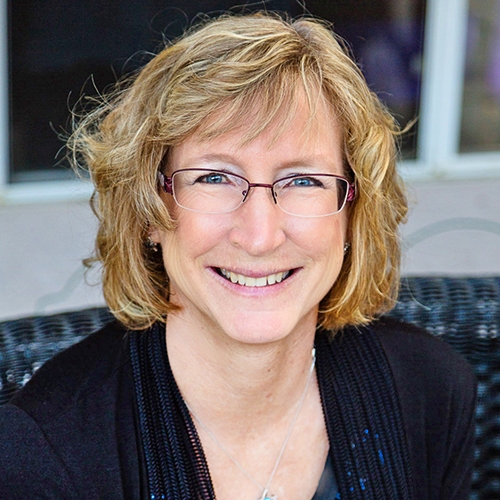

Lisa Marasco has been working with breastfeeding mothers for 35 years and has been Internationally Board Certified since 1993. She holds a Master’s degree in Human Development with specialization in Lactation Consulting and was designated a Fellow of ILCA in 2009.
Lisa is co-author of Making More Milk: The Breastfeeding Guide to Increasing Your Milk Production, a contributing author to the Core Curriculum for Interdisciplinary Lactation Care, and a Cochrane Collaborative author. She is employed by WIC of Santa Barbara County while she continues to research, write and speak. In addition, Lisa is affiliated with La Leche League of So. Calif/Nevada, and serves on the Breastfeeding Coalition of Santa Barbara County.
Topic: Deciphering the Lactation Curve - [View Abstract]
Topic: Getting a Better Grip on Prolactin - [View Abstract]
Topic: Recognizing When Things Are Heading South - [View Abstract]
Topic: The Mysterious Milk Ejection Reflex - [View Abstract]
Milk removal drives milk production and feeds the baby. The ability of a baby or pump to remove milk from the breast depends strongly on the milk ejection/letdown reflex. While normally robust, a number of factors can influence this reflex, some more obvious than others. When milk flow suddenly becomes an issue, the rush is on to determine why and what to do about it. This session will take a deeper look at how this reflex works, factors that can affect it positively or negatively, and potential strategies to help.

View Details / Enroll
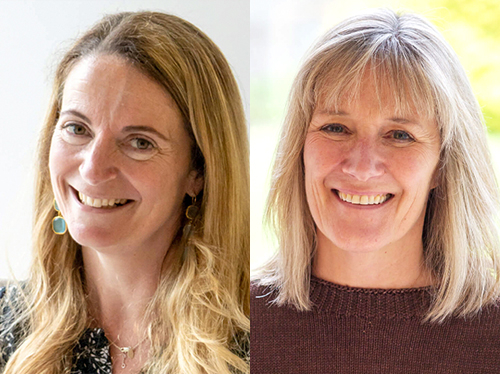

Emily Hills is co-author and co-founder of Sensory Beginnings Ltd, she is a Clinical Specialist Neonatal Occupational Therapist at Royal Free London NHS Foundation Trust. Emily is a certified neonatal therapist (CNT). She has completed her MSc in Advanced Neonatal Studies at Southampton University. Emily is NIDCAP certified and lectures on The Family and Infant Neurodevelopmental Education (FINE) programme in the UK. Emily has completed Neonatal Touch and massage certification (NTMC) and has completed the advanced course in The Prechtl General Movement Assessment. She is a senior Brazelton trainer and lectures on both the Neonatal Behavioural Assessment Scale (NBAS) and Newborn Behavioural Observation (NBO). She is an Advanced Practitioner in Sensory Integration.
Lindsay Hardy is the Director of Clinical Services at PACE, where she leads a multidisciplinary team of therapists, providing therapy to children from 0- 19 years and support to their families. Lindsay has led the development of the Pace Early Intervention Service for children 0-3 years and their families. Lindsay has designed content and taught post-graduate courses in the field of paediatric occupational therapy, sensory integration, cerebral palsy, early intervention & developmental neurology. Lindsay was involved in the start-up of national organisations Sensory Integration Network UK & Ireland and EISMART. She is co -founder and co-author of Sensory Beginnings Ltd
Human neurobiology is highly sensitive to stressors. Adverse early life experiences create stress that have the possibility to change brain chemistry, anatomy and gene expression. These changes can predispose a baby to impaired emotional regulation, poor cognitive development, and increased risk of cardiovascular, metabolic and immune system dysfunction. In addition, chronic stress can become trauma and have a long term effect. In the neonatal unit the infant, parents and staff are experiencing stress. This presentation will focus on the role of sensation and how we can use sensory experiences to create healing environments, enhance optimal development and minimise stress and trauma.
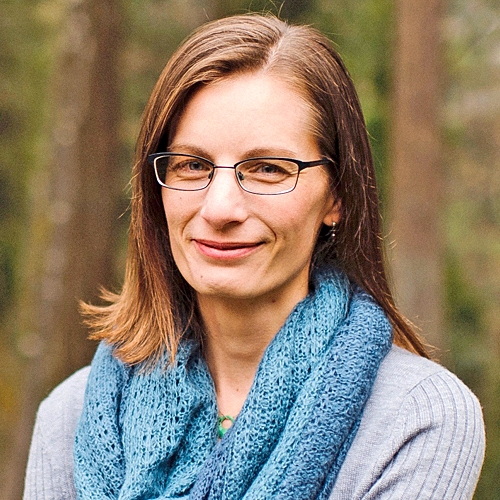
The Science of Infant Feeding: New Research on Gut Development, Microbiome, and Risk of Allergy

Alice Callahan completed her PhD in Nutritional Biology at UC Davis in 2008, followed by a postdoc in fetal physiology at the University of Arizona. She left the academic track in 2011 to pursue a dual career in college teaching and science writing. Her book, The Science of Mom: A Research-Based Guide to Your Baby’s First Year, about the science of raising a baby, was published in 2015 by Johns Hopkins University Press and was named one of the best science books of the year by Science News. As a freelance writer, Callahan covers health and nutrition topics – often focusing on pregnancy, infancy, and childhood – for many publications, including The New York Times, Washington Post, and Lifehacker. She and her family live in Eugene, Oregon, where she also teaches nutrition and physiology at the University of Oregon and Lane Community College.
Research continually uncovers the complex relationship between infant feeding and development. It’s driven by our fascination and desire to understand early development, but it also has real-world implications for the decisions parents make about how to feed their babies. New parents and even perinatal professionals are often confused about infant feeding guidelines, finding information to be conflicting, overwhelming, and ever-changing. We’ll start with an overview of how an infant’s gastrointestinal tract develops and what we know about how human milk consumption supports optimal development. Then we’ll delve into the latest research on intestinal permeability, early formula supplementation, and timing of introduction of solid foods to prevent allergies. Feeding is one of the primary ways that we care for and show babies that we love them, and by providing up-to-date and accurate information, perinatal professionals can help families feel calm and confident about their feeding choices.

View Details / Enroll



